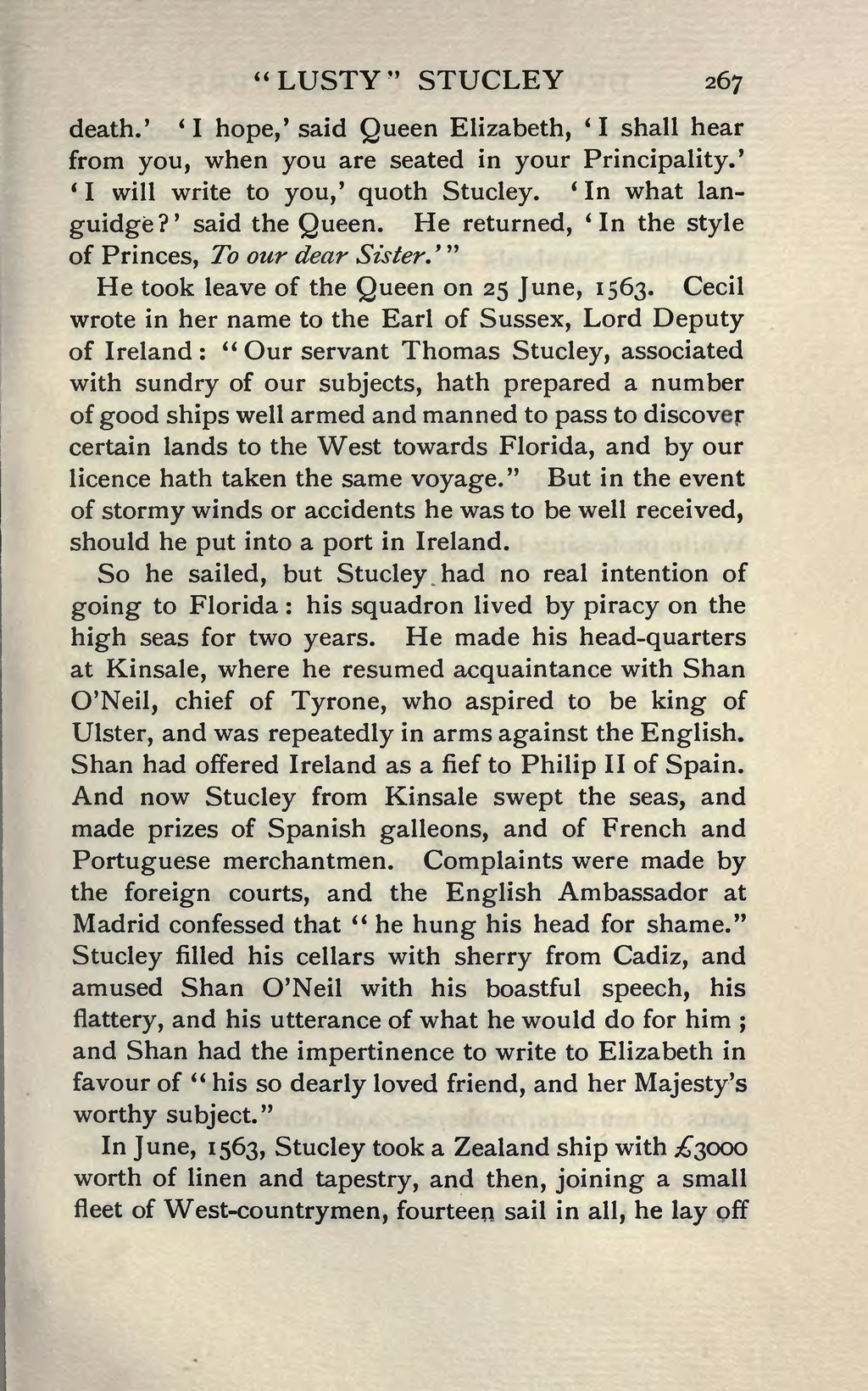death.' 'I hope,' said Queen Elizabeth, 'I shall hear from you, when you are seated in your Principality.' ’I will write to you,' quoth Stucley. ’In what languidge?' said the Queen. He returned, 'In the style of Princes, To our dear Sister.’"
He took leave of the Queen on 25 June, 1563. Cecil wrote in her name to the Earl of Sussex, Lord Deputy of Ireland: "Our servant Thomas Stucley, associated with sundry of our subjects, hath prepared a number of good ships well armed and manned to pass to discover certain lands to the West towards Florida, and by our licence hath taken the same voyage." But in the event of stormy winds or accidents he was to be well received, should he put into a port in Ireland.
So he sailed, but Stucley. had no real intention of going to Florida: his squadron lived by piracy on the high seas for two years. He made his head-quarters at Kinsale, where he resumed acquaintance with Shan O'Neil, chief of Tyrone, who aspired to be king of Ulster, and was repeatedly in arms against the English. Shan had offered Ireland as a fief to Philip II of Spain. And now Stucley from Kinsale swept the seas, and made prizes of Spanish galleons, and of French and Portuguese merchantmen. Complaints were made by the foreign courts, and the English Ambassador at Madrid confessed that "he hung his head for shame." Stucley filled his cellars with sherry from Cadiz, and amused Shan O'Neil with his boastful speech, his flattery, and his utterance of what he would do for him; and Shan had the impertinence to write to Elizabeth in favour of "his so dearly loved friend, and her Majesty's worthy subject."
In June, 1563, Stucley took a Zealand ship with £3000 worth of linen and tapestry, and then, joining a small fleet of West-countrymen, fourteen sail in all, he lay off

